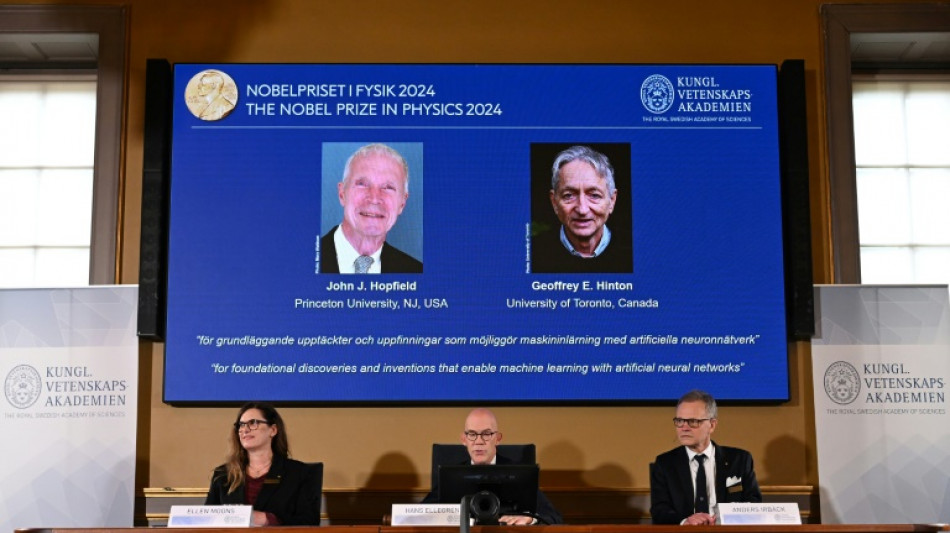
-
 Sinner caps eventful year with ATP Finals triumph over great rival Alcaraz
Sinner caps eventful year with ATP Finals triumph over great rival Alcaraz
-
Portugal book spot at 2026 World Cup as England stay perfect

-
 Hakimi, Osimhen, Salah shortlisted for top African award
Hakimi, Osimhen, Salah shortlisted for top African award
-
Sinner beats great rival Alcaraz to retain ATP Finals title

-
 Schenk wins windy Bermuda Championship for first PGA title
Schenk wins windy Bermuda Championship for first PGA title
-
Crime, immigration dominate as Chile votes for president

-
 Kane double gives England record-setting finish on road to World Cup
Kane double gives England record-setting finish on road to World Cup
-
World champions South Africa add Mbonambi, Mchunu to squad

-
 Greenpeace says French uranium being sent to Russia
Greenpeace says French uranium being sent to Russia
-
'Now You See Me' sequel steals N. American box office win

-
 Argentina beat Scotland after frenzied fightback
Argentina beat Scotland after frenzied fightback
-
Argentina beat Scotland after stunning fightback

-
 Pope urges leaders not to leave poor behind
Pope urges leaders not to leave poor behind
-
Pressure will boost Germany in 'knockout' Slovakia clash, says Nagelsmann

-
 Ecuador votes on hosting foreign bases as Noboa eyes more powers
Ecuador votes on hosting foreign bases as Noboa eyes more powers
-
Portugal qualify for 2026 World Cup by thrashing Armenia

-
 Greece to supply winter gas to war battered Ukraine
Greece to supply winter gas to war battered Ukraine
-
India and Pakistan blind women show spirit of cricket with handshakes

-
 Ukraine signs deal with Greece for winter deliveries of US gas
Ukraine signs deal with Greece for winter deliveries of US gas
-
George glad England backed-up haka response with New Zealand win

-
 McIlroy loses playoff but clinches seventh Race to Dubai title
McIlroy loses playoff but clinches seventh Race to Dubai title
-
Ecuador votes on reforms as Noboa eyes anti-crime ramp-up
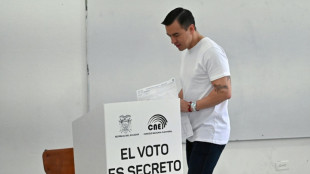
-
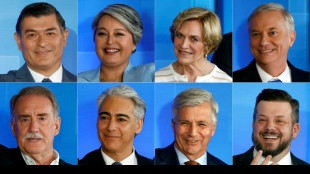 Chileans vote in elections dominated by crime, immigration
Chileans vote in elections dominated by crime, immigration
-
Turkey seeks to host next COP as co-presidency plans falter
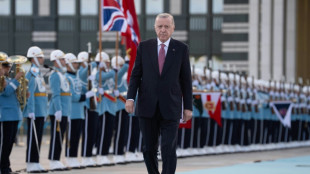
-
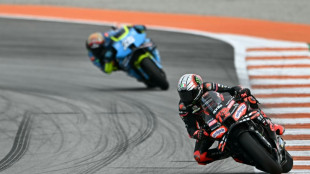 Bezzecchi claims Valencia MotoGP victory in season-ender
Bezzecchi claims Valencia MotoGP victory in season-ender
-
Wasim leads as Pakistan dismiss Sri Lanka for 211 in third ODI
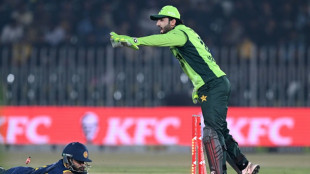
-
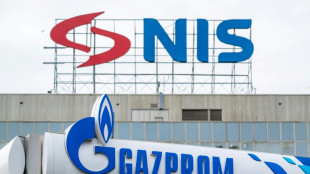 Serbia avoiding 'confiscation' of Russian shares in oil firm NIS
Serbia avoiding 'confiscation' of Russian shares in oil firm NIS
-
Coach Gambhir questions 'technique and temperament' of Indian batters
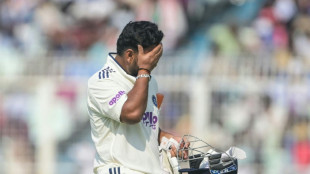
-
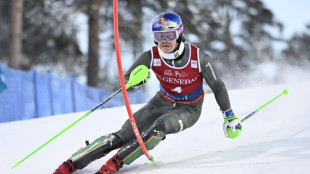 Braathen wins Levi slalom for first Brazilian World Cup victory
Braathen wins Levi slalom for first Brazilian World Cup victory
-
Rory McIlroy wins seventh Race to Dubai title
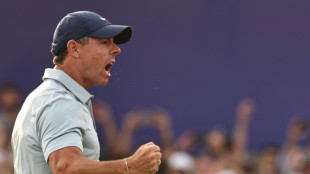
-
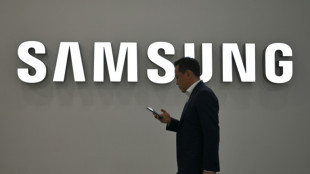 Samsung plans $310 bn investment to power AI expansion
Samsung plans $310 bn investment to power AI expansion
-
Harmer stars as South Africa stun India in low-scoring Test
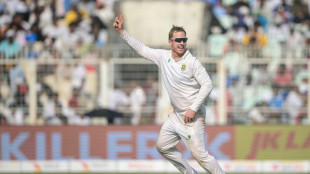
-
 Mitchell ton steers New Zealand to seven-run win in first Windies ODI
Mitchell ton steers New Zealand to seven-run win in first Windies ODI
-
Harmer stars as South Africa bowl out India for 93 to win Test

-
 China authorities approve arrest of ex-abbot of Shaolin Temple
China authorities approve arrest of ex-abbot of Shaolin Temple
-
Clashes erupt in Mexico City anti-crime protests, injuring 120

-
 India, without Gill, 10-2 at lunch chasing 124 to beat S.Africa
India, without Gill, 10-2 at lunch chasing 124 to beat S.Africa
-
Bavuma fifty makes India chase 124 in first Test

-
 Mitchell ton lifts New Zealand to 269-7 in first Windies ODI
Mitchell ton lifts New Zealand to 269-7 in first Windies ODI
-
Ex-abbot of China's Shaolin Temple arrested for embezzlement

-
 Doncic scores 41 to propel Lakers to NBA win over Bucks
Doncic scores 41 to propel Lakers to NBA win over Bucks
-
Colombia beats New Zealand 2-1 in friendly clash

-
 France's Aymoz wins Skate America men's gold as Tomono falters
France's Aymoz wins Skate America men's gold as Tomono falters
-
Gambling ads target Indonesian Meta users despite ban

-
 Joe Root: England great chases elusive century in Australia
Joe Root: England great chases elusive century in Australia
-
England's Archer in 'happy place', Wood 'full of energy' ahead of Ashes

-
 Luxury houses eye India, but barriers remain
Luxury houses eye India, but barriers remain
-
Budget coffee start-up leaves bitter taste in Berlin

-
 Reyna, Balogun on target for USA in 2-1 win over Paraguay
Reyna, Balogun on target for USA in 2-1 win over Paraguay
-
Japa's Miura and Kihara capture Skate America pairs gold


Nobel-winning physicist 'unnerved' by AI technology he helped create
A US scientist who won the 2024 Nobel physics prize for his pioneering work on artificial intelligence said Tuesday he found recent advances in the technology "very unnerving" and warned of possible catastrophe if it isn't kept in check.
John Hopfield, a professor emeritus at Princeton, joined co-winner Geoffrey Hinton in calling for a deeper understanding of the inner workings of deep-learning systems to prevent them from spiraling out of control.
Addressing a gathering at the New Jersey university via video link from Britain, the 91-year-old said that over the course of his life he had watched the rise of two powerful but potentially hazardous technologies -- biological engineering and nuclear physics.
"One is is accustomed to having technologies which are not singularly only good or only bad, but have capabilities in both directions," he said.
"And as a physicist, I'm very unnerved by something which has no control, something which I don't understand well enough so that I can understand what are the limits which one could drive that technology."
"That's the question AI is pushing," he continued, adding that despite modern AI systems appearing to be "absolute marvels," there is a lack of understanding about how they function, which he described as "very, very unnerving."
"That's why I myself, and I think Geoffrey Hinton also, would strongly advocate understanding as an essential need of the field, which is going to develop some abilities that beyond the abilities you can imagine at present."
Hopfield was honored for devising the "Hopfield network" — a theoretical model demonstrating how an artificial neural network can mimic the way biological brains store and retrieve memories.
His model was improved upon by British-Canadian Hinton, often dubbed the "Godfather of AI," whose "Boltzmann machine" introduced the element of randomness, paving the way for modern AI applications such as image generators.
With the meteoric rise of AI capabilities -- and the fierce race it has sparked among companies -- the technology has faced criticism for evolving faster than scientists can fully comprehend.
"You don't know that the collective properties you began with are actually the collective properties with all the interactions present, and you don't therefore know whether some spontaneous but unwanted thing is lying hidden in the works," stressed Hopefield.
He evoked the example of "ice-nine" -- a fictional, artificially engineered crystal in Kurt Vonnegut's 1963 novel "Cat's Cradle" developed to help soldiers deal with muddy conditions but which inadvertently freezes the world's oceans solid, causing the downfall of civilization.
"I'm worried about anything that says... 'I'm faster than you are, I'm bigger than you are...can you peacefully inhabit with me?' I don't know, I worry."
Z.Ramadan--SF-PST




